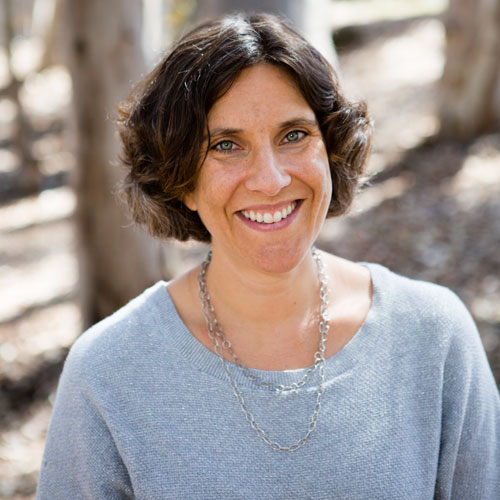
The graduating seniors of Warren College chose Christine Alvarado, the Jacobs School of Engineering Associate Dean for Students and CSE Teaching Professor, to receive the 2020 Outstanding Faculty Teaching Award, which was presented to her during the virtual graduation ceremony on June 13. (Her acceptance speech can be viewed here at 31:20 minutes into the ceremony.)
“This is a great honor that underscores Christine’s unwavering dedication to education, to students and to the overall mission of UC San Diego,” said incoming CSE department chair Sorin Lerner.
Alvarado has been with UC San Diego for eight years, coming from Harvey Mudd College, and teaches a variety of upper and lower division classes, many focused on helping students learn to program: CSE 8A, 8B, 12, 100, 151a and 193.
Naturally, her approaches vary with course level. During her introductory programming classes, she both teaches and coaches, helping her students understand that, even if the material is difficult, they belong.
“I know everybody can learn the material I'm trying to teach them,” said Alvarado. “So, my philosophy is to inspire them, help them find their path to learning the material and help them see that everybody's path is unique.”
And students can attest to that. As one wrote in the survey used to select the winner: Alvarado “truly cares about her students learning and conducts her lectures in a way that stimulates learning and discussion with the material. She is inspiring.”
Alvarado likes to incorporate a lot of flexibility into the work. In 8A, she may devise an assignment asking students to write a program to convert a value from one unit to another, say dollars to euros. But the students can choose what to convert and how to do it. There are still constraints, but people have wide latitude to be creative.
CSE 100 presents a different challenge. As a mid-level course, it’s the first-time students are coding larger projects from scratch. She supports students by breaking the assignments into smaller pieces, which she calls checkpoints. Each student must complete a small bite before they can move on to the next. It helps keep them on track.
She also likes to share her experiences as an undergraduate. “These constructs that seem so easy to me now, I vividly remember struggling with them. I tell students: It's okay if you don't get it right away. When I first learned this, I was a frustrated, I was in tears because it just didn't make sense to me. Now, of course, it feels like the easiest thing I ever learned. I want students to understand that, eventually, it will seem easy to them, too.”
Alvarado gives students many opportunities to engage with the material: longer homework assignments, weekly quizzes, exams—and she provides plenty of opportunities for them to demonstrate improvements in their learning over time. For example, if a student tanks an exam, they can make up points by demonstrating they’ve learned the material on the final exam. She structures the final into thirds. One part covers midterm one, another covers midterm two and the third takes in everything after. If a student does better on a section corresponding to a midterm, the higher grade replaces their midterm score.
“I don't care how fast they learn it, as long as they learn it by the end,” she says. “Their final grade reflects their ultimate learning at the end of the course. I think that helps motivate a lot of students and helps them see this isn't a race. However they can get there, they can get there. And if they don’t quite get there, that’s fine too. There’s no shame in trying again.”
In addition to her teaching, Alvarado conducts research on education, focusing on diversity and equity in computing and developing teaching methods and programs to make computer science education more equitable.
One of her signature projects is the Early Research Scholars Program, an apprenticeship for sophomores that helps students, particularly those from underrepresented groups, have access to and succeed in year-long research projects.
Alvarado would prefer if students didn’t focus so heavily on grades, but rather embrace the learning process. She wants them to understand that grades aren’t the end goal. The ultimate achievement is understanding the material and applying it.
“When a former student writes me, a year or two later, and says your classes made such a difference in my long-term trajectory, I learned to love computer science, and here's where I ended up. That's a highlight.”
There are many of these stories. As another student wrote in the survey, “She was the first professor I ever had coming to UCSD. She was super passionate about teaching and it really left a lasting impression on me.”

